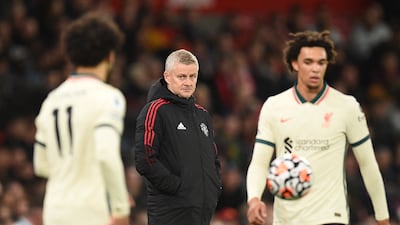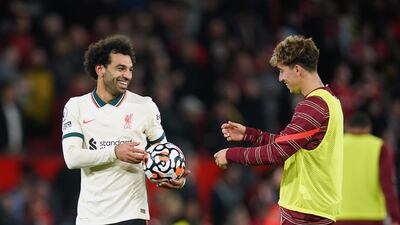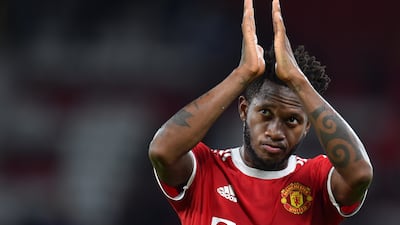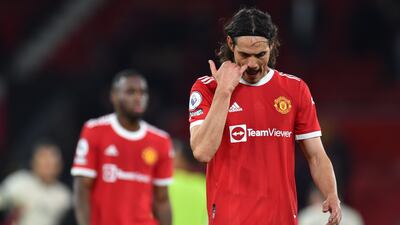In the first week of last December, Antonio Conte and Ole Gunnar Solskjaer headed east, rallying their players for a D-Day in Europe. Conte spoke of glimpsing “a shaft of light” for his Internazionale team as they sought the victory they needed to progress from a wildly unpredictable Champions League group, away at Shakhtar Donetsk.
Manchester United’s manager, looking ahead to a decisive last group game at RB Leipzig, a must-win for Solskjaer’s team after a rollercoaster of a campaign, talked of seeing the team's “belief coming back”.
Both Conte and Solskjaer failed on their last-day missions, their clubs exiting Europe’s principal competition at the first stage. It was a damaging shortfall for two so-called ‘superclubs’, and prompted familiar criticisms of the respective coaches.
Solskjaer’s game-management was scrutinised, after Leipzig went 2-0 up after 13 minutes, and three ahead before United launched an inadequate, two-goal comeback. The habit of United falling behind before finding their gears had already become a feature of the Solskjaer era. Some of the comebacks had been rousingly successful, but when they weren’t it was costly.
In Italy, Conte heard the same critique that has lurked throughout his dazzlingly effective career as a coach in domestic leagues - the fact that he seldom matches those successes in Europe. In five attempts at the Champions League, with Inter, Chelsea and Juventus, he has suffered three group-stage exits.
Conte’s best European showing? Inter’s 2020 final in the Europa League, narrowly lost to Spain’s Sevilla. Solskjaer can mirror that precisely. His United went on from their dispiriting night in Leipzig to a Europa League final they lost only on sudden-death penalty shoot-out to Spain’s Villarreal.
Conte’s Inter meanwhile went out of the Champions League at Shakhtar and on to the Serie A title last May, their head coach promptly departing, dissatisfied with the resources available to him. Out of work, Conte now lurks as a tempting alternative to Solskjaer as United’s decision-makers procrastinate over whether repeated shortcomings, most visible in the 5-0 home defeat to Liverpool, mean a more experienced manager than Solskjaer is needed.
Manchester United 0-5 Liverpool ratings
There is plenty to recommend Conte. His last job in the Premier League, at Chelsea, yielded a title in his first season. He wins domestic titles - five, spread across England and Italy - with every elite club he joins. He might even resolve the puzzle that is Paul Pogba. He was a helpful shepherd, at Juventus, to a young Pogba’ career at Juventus.
Above all, there is Conte’s rigour, his studious attention to system and positional discipline, and the perfectionist drive he displays so vividly on the touchline. “He obsesses over every last detail, and he’s allergic to mistakes,” remarked Andrea Pirlo, who worked under Conte at Juventus. “He’s not a guru or a magician, but when Conte speaks, his words blast through you, and settle deep within you.”
Conte is understood to be interested in the United job, even prepared to break his usual practice of only joining clubs between seasons if Solskjaer’s position becomes vacant after the next two or three matches, beginning with United’s trips to Tottenham Hotspur and Atalanta.
Defeat in the second of those could point United towards a similarly nervous finish to a competitive Champions League group as last season. United’s executives would pause to wonder at whether Conte is the best man to set about a European rescue.
They would certainly pause before imagining he is a long-term guarantor of a transition to the pre-eminent, consistently successful United of 20 years ago. Conte does not linger in his jobs. At Juventus, he left after three seasons and three successive titles. At Chelsea, he became frustrated and his employers exasperated with his demands after two years. After two seasons with Inter, the combination of a sudden financial crisis and Conte’s budget expectations made a departure inevitable.
He left Inter knowing that his glittering CV in domestic football put him at the front of the queue for the next superclub seeking a new head coach. He also knows that nobody will take him on blind. This time three years ago, the last time Conte was seeking work in mid-season, he was close to joining Real Madrid. Resistance from within the dressing-room played a part in Madrid not hiring Conte.
In a thinly-veiled reference to Conte’s reputation, the then Madrid captain Sergio Ramos spoke of “respect being earned, not imposed”. Ramos had clashed with Jose Mourinho at Madrid, and was not ready to welcome another combative martinet as manager.
Conte will not like it, but the idea he is too like Mourinho clouds some at United’s perception of him too.














































